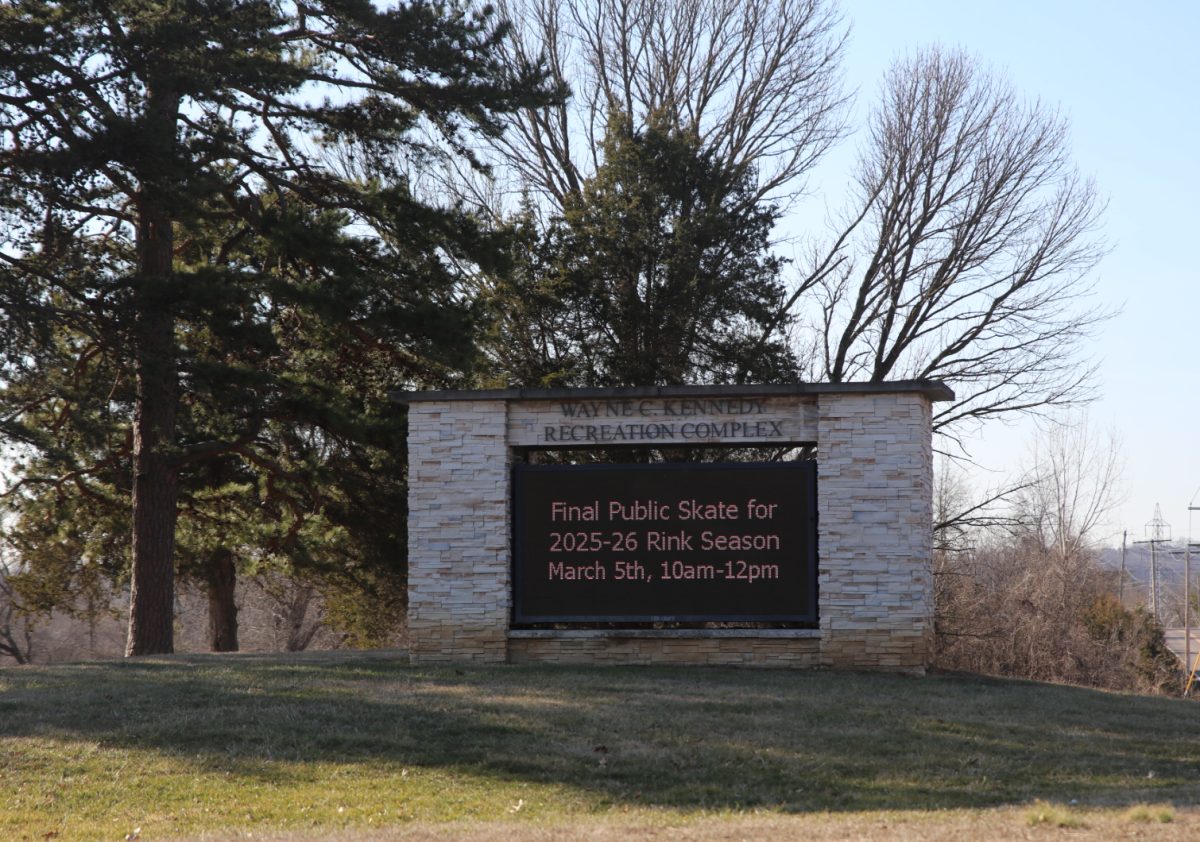The scheduled April 1 closing of Macy’s has forced Crestwood aldermen to reconsider a previously rejected request to reduce spending as well as study new cuts.
City Administrator Jim Eckrich recommended last week that the Board of Aldermen cut $237,900 from 2009 budgeted expenses of roughly $13.7 million.
Aldermen in December approved a 2009 budget that authorizes the use of more than $600,000 in reserves to balance it. The city had an estimated $3.4 million in reserves on Jan. 1.
Eckrich estimates that the April 1 closing of Macy’s will result in a 2009 revenue loss of $181,000. But in 2010, city officials believe the Macy’s closing will result in an estimated $350,000 loss of revenue from sales taxes and license fees.
Eckrich has recommended the following cuts be approved to make up for the loss of revenue from Macy’s: $84,700 for a vacant fire-captain position, $61,700 for a vacant police-officer position, $56,000 for public-works vehicles, $18,000 for a lifeguard-services contract, $9,000 in relation to Community Center and Aquatic Center management software, $4,800 in treadmill purchases and $4,000 for a mowing contract.
In December, aldermen voted 4-3 to reject Ward 3 Alderman Jerry Miguel’s motion to remove the vacant police-officer position from the 2009 budget.
Along with cutting the vacant police-officer position, Eckrich has proposed that the city establish a hiring freeze until after the first quarter of 2009.
“All vacant positions would not be filled until the first quarter is finished,” Eckrich said. “At that point, we’ll look at the first quarter, see where our sales-tax figures are, see where our revenues are and see if further expenditure reductions are made.”
Aldermen last week moved forward with one of Eckrich’s recommendations by approving new RecTrac software for front-desk operations at the Aquatic Center and Community Center at Whitecliff Park. The city will fund the software over the next three years, paying $15,409 in 2009 and $4,954 in both 2010 and 2011. The software will allow the city to save $9,000 annually in personnel and supply costs.
Additionally, aldermen last week cut $22,414 related to mowing and pool-management contracts from the park and stormwater fund’s 2009 budget. This will open up funding in the current park and stormwater budget to pay for $10,000 of federally required pool grates.
Aldermen could take action on Eckrich’s remaining recommended cuts on Jan. 27.
Asked by Ward 4 Alderman Steve Nieder why officials did not push for these cuts before aldermen approved the 2009 budget, Mayor Roy Robinson replied that while aldermen had discussed the vacant police-officer position, city officials recently learned of the vacant fire-captain position.
“We’ve had people who left and we were able to utilize those positions,” he said. “And now, the only reason (Eckrich) is trying to do this is to put it within the budget so we’re well within the losses of Macy’s for the rest of the year. Otherwise, we would not be suggesting we do this. If you’re trying to say you all recognized, no, none of you knew anything about it. We did not know anything about the economy or the world going down the tubes and we did not know that Macy’s would be closing. So if you had those numbers, you should be paid for it because that would be very valuable for the whole world to know that you knew that we needed to make these cuts.”
“Oh, I beg to differ with you,” Nieder said. “The fact of the matter is back in December, we knew full well what’s going on in the economy. That’s why these suggestions were made to begin with, number one. And number two, there was never any intention of compromising safety. A vacant position doesn’t compromise safety … I’m just trying to understand why we are being reactive instead of proactive. We get caught with our tails every time.”
“We’re not caught with our tail,” Robinson said.
“Yes, we are,” Nieder said. “We’re reacting to it right now.”
“No, we’re not getting caught with anything,” Robinson said. “What we’re doing is we’re trying to make good, sound judgments.”
Besides grappling with further budget cuts, aldermen must decide whether to retire $1.57 million in remaining debt.
In April 2006, voters approved a seven-year, 20-cent tax-rate increase promoted by city officials as a way to retire $2 million in debt and a $1.5 million line of credit. Aldermen since have rolled back that tax’s residential rate to 16.9 cents.
With aldermen now considering retiring that debt early, that revenue instead may be used until 2013 to build cash reserves.
The original $2.87 million note contains an Internal Revenue Service provision that limits the city’s general-fund balance to no more than 5 percent of the highest expenditure month during the previous calendar year. With that 5-percent limit still in place on the tax-exempt note, Eckrich has estimated the city would eliminate its debt by paying from $900,000 to $1.13 million in excess cash reserves on top of the scheduled 2009 payment of $478,000.
City Attorney Rob Golterman last week assured aldermen that the Prop S ballot language allows the tax to be collected even after Prop S debt is retired.
But Nieder cited a Board of Aldermen resolution approved March 28, 2006 — one week before the April 2006 election — that states Prop S “… is solely to retire our current debt to Southwest Bank and to eliminate the need for our current line of credit from that same bank …”
“Are you telling me that this resolution, which specifically states in here the intention of the board with that money, is overwritten by the ballot?” Nieder asked. “Is that what you’re telling me?”
“That’s exactly what I’m telling you,” Golterman said.
“So the resolution isn’t worth a crap,” Nieder said. “If anybody hears that that’s what we resolved to do with it, then we might as well just put fire to it. It has no meaning whatsoever. So we’ve broken the trust of the citizens. That’s what we put out as a resolution. We told the citizens what we were going to do.”
“I was asked, Alderman Nieder, I was asked a legal question,” Golterman said. “The ballot language — what the voters went into the ballot box and voted for — that language controls the use of those funds.”
“So, we can misguide the citizens with a resolution and put something else on a ballot,” Nieder said. “That’s a sly way to do things.”








